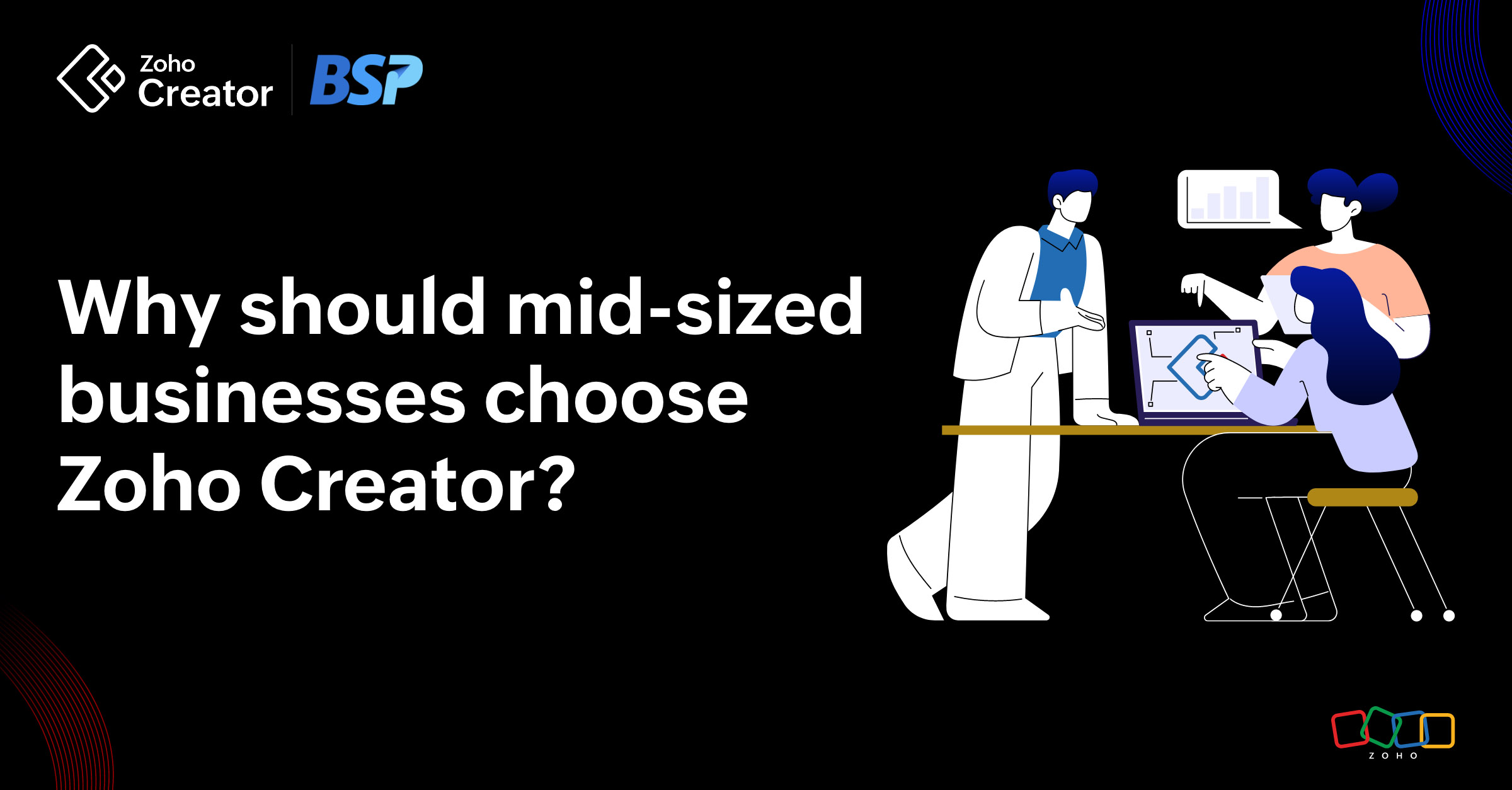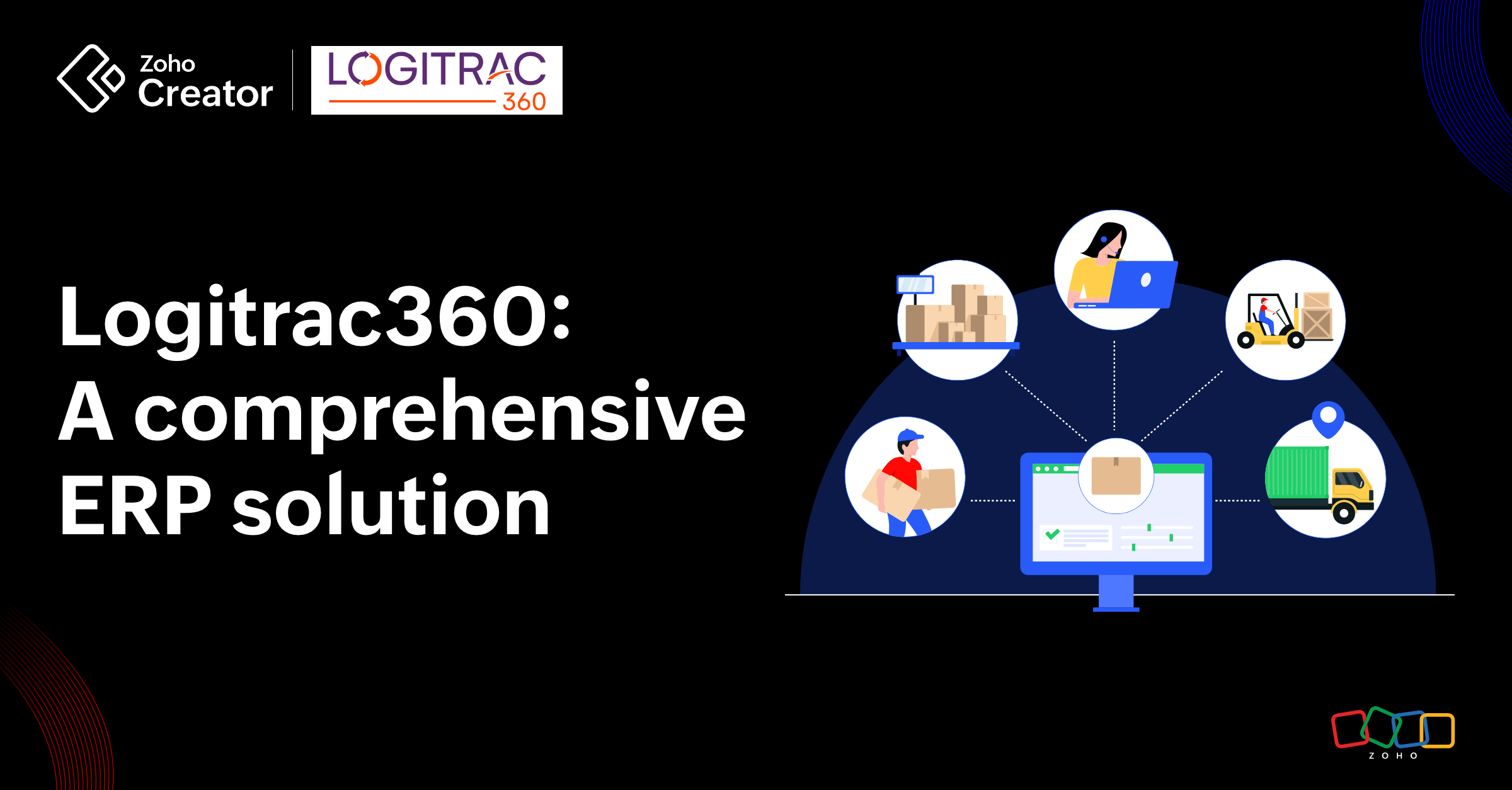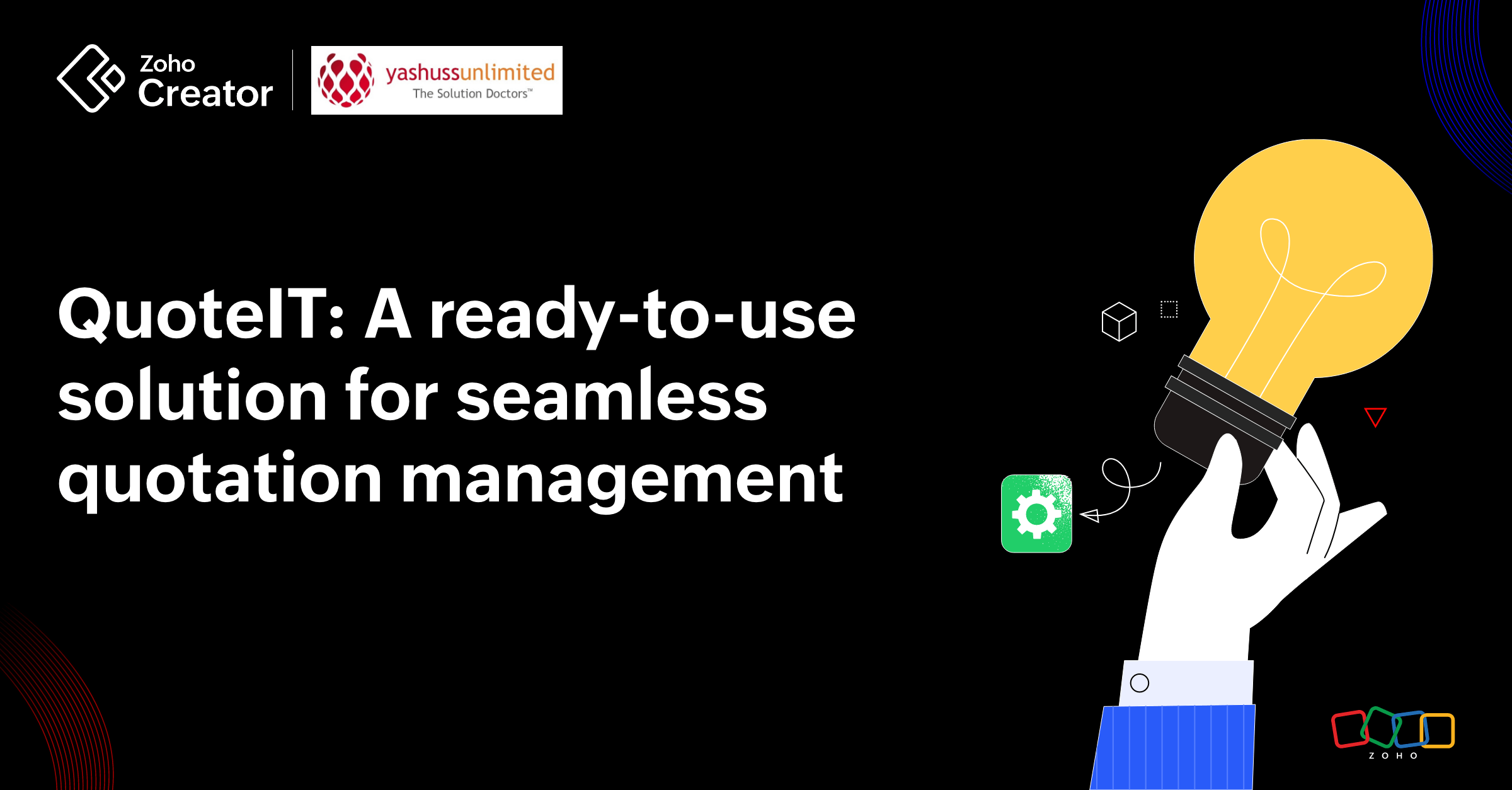- HOME
- Create Your Way
- Zoho Creator: A developer's best friend for building powerful business applications
Zoho Creator: A developer's best friend for building powerful business applications
- Last Updated : September 6, 2024
- 1.1K Views
- 3 Min Read
This is a guest post by Youness Outlou, CTO at BSP, a Zoho Premium Partner. In it, he discusses the value Zoho Creator brings to developers and highlights how it plays an integral part in delivering success to their customers.
Over the years of using Zoho Creator and exploring its rich functionalities, I've always recognized its profound impact on the developer community, particularly within the no-code/low-code space. I often refer to Zoho Creator as a hero due to my personal experience with this remarkable platform and the dedicated team behind it. This sentiment has repeatedly been validated due to Creator's quick development, flexibility, and rich integration capabilities.
- Youness Outlou, CTO at BSP
The impact of Zoho Creator on the developer community
Zoho Creator has enabled the creation and development of countless apps for clients and partners, addressing needs that were previously unmet or inadequately served. The platform empowers both developers and non-developers to build robust applications without extensive coding knowledge, making it an indispensable tool in today's fast-paced business environment.
With Zoho's reputation as a leader and visionary in the SaaS industry—spanning CRM, app development, finance, analytics, and more—mid-market and enterprise organizations are increasingly recognizing the value of Zoho's ecosystem. This is where Zoho Creator comes in and confirms my belief that it's a hero even at Zoho—and I have proof.
How Creator packed in everything to transform operations for a travel agency
Background and challenges
The example I'll share is based on a real use case with a major travel agency in Canada. They needed to effectively manage recurring payables and receivables, handle multinational currency transactions, and ensure accurate organizational financial reporting, all while dealing with a vast amount of vendors and a diversified core including hotels, rental cars, restaurants, and more. Additionally, they maintain relationships with various airline companies, government entities, and global organizations, all of which have complex technological requirements. Their existing systems were proving inefficient and costly, prompting them to seek a more integrated and automated solution—which they found in Zoho One.
A tailored solution for their business need
Zoho’s rich ecosystem met these diverse needs with apps like CRM, People, and Flow. However, one important requirement was accounting. Zoho Books is a powerful tool for managing your accounting needs. But when it comes to handling payables, receivables, deposits, and multi-currencies from vendors and clients across different countries and tax jurisdictions, having an additional layer of control, validation, and approval would enhance the workflow. This is where Zoho Creator became invaluable.
Zoho Creator provided a tailored solution to meet the agency's needs:
Creation of multiple forms: Zoho Creator efficiently managed an integration of payable and receivable forms from different platforms to create and send payments.
Deluge script: Zoho's scripting language allows powerful customization—automating workflows, validating data, and integrating with third-party services. In the travel agency's case, Deluge scripts streamlined data processing and matched vendor information with client contracts, resulting in saving hours of manual work.
Workflows: Using workflows, they automated repetitive tasks and created structured processes, such as generating invoices and managing taxes, ensuring accuracy and consistency across financial transactions.
Reports: This component of Creator enabled the accounting and operations teams to double-check and validate each trip and traveler, ensuring thorough and accurate trip closures.
Results and benefits
Without Zoho Creator, the client would have needed a costly web service or alternate accounting software, potentially creating disruptions to their system. Instead, the Zoho Creator app resulted in substantial savings, offering a solution that would have otherwise cost them at least three times more in terms of time and money. Even better, it provides the flexibility to meet future needs.
This case is just one of many that highlights the vital role of Zoho Creator within both Zoho’s ecosystem and the broader development landscape.
Zoho Creator: A standout in the development sphere
As Zoho continues to evolve, its ecosystem remains a top choice for companies seeking a comprehensive and integrated approach to business applications. Zoho Creator truly stands out in the development world, empowering organizations to tailor solutions to their unique needs.
 Zoho Creator
Zoho CreatorWith over 16 years of experience, Zoho Creator is a pioneer in the world of low-code. We empower users to build powerful solutions with minimal coding expertise. So, keep watching this space for all things low-code/digital transformation



